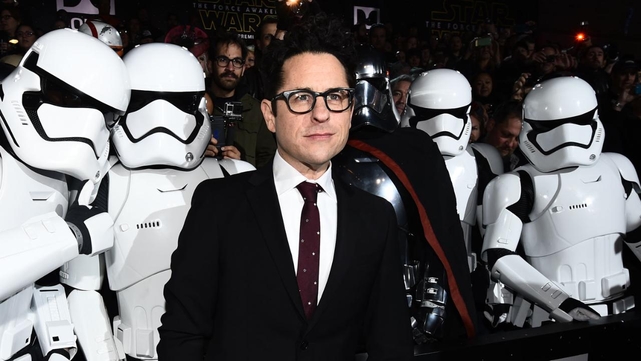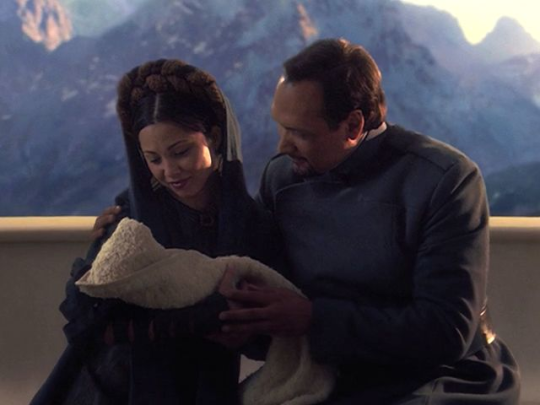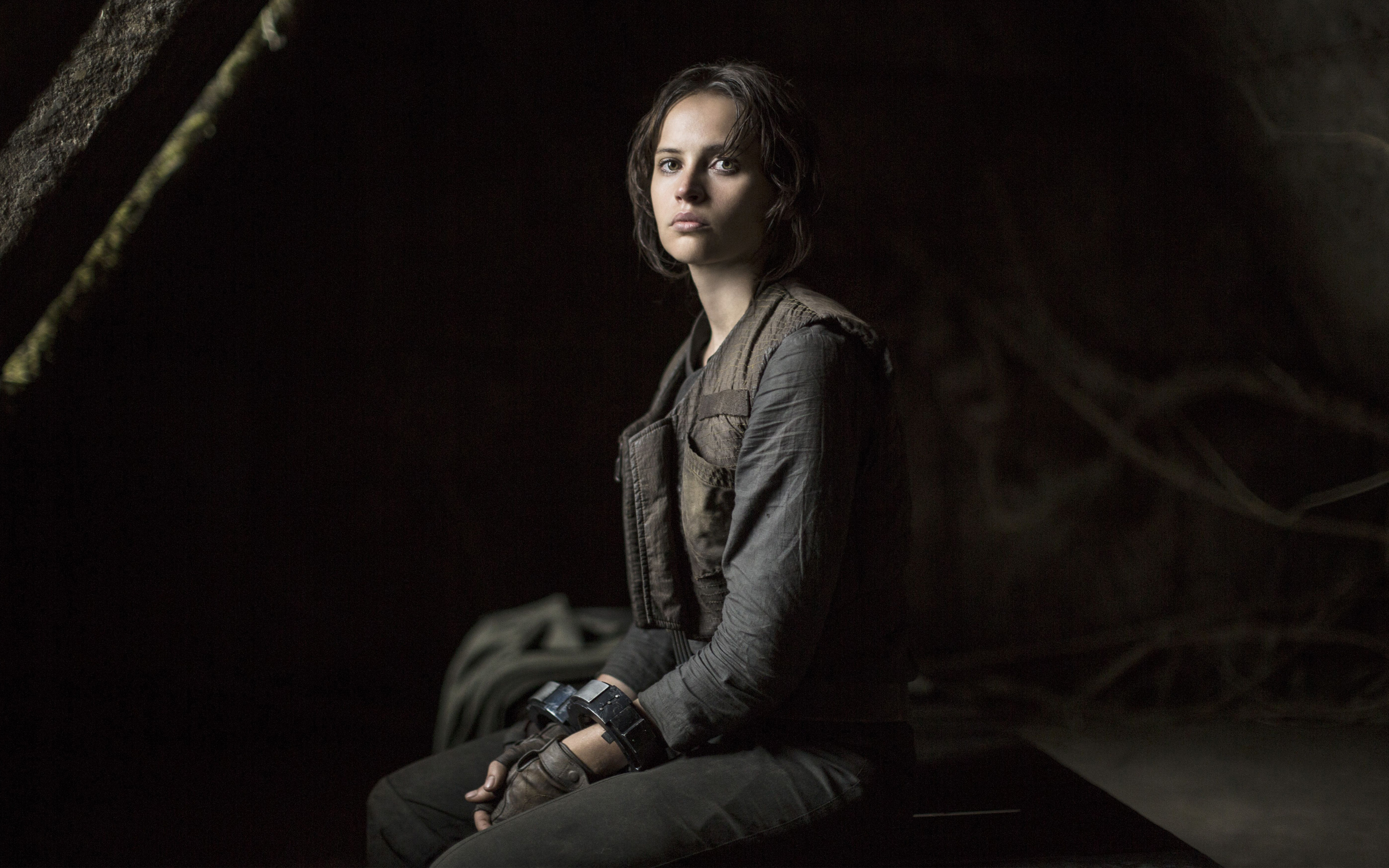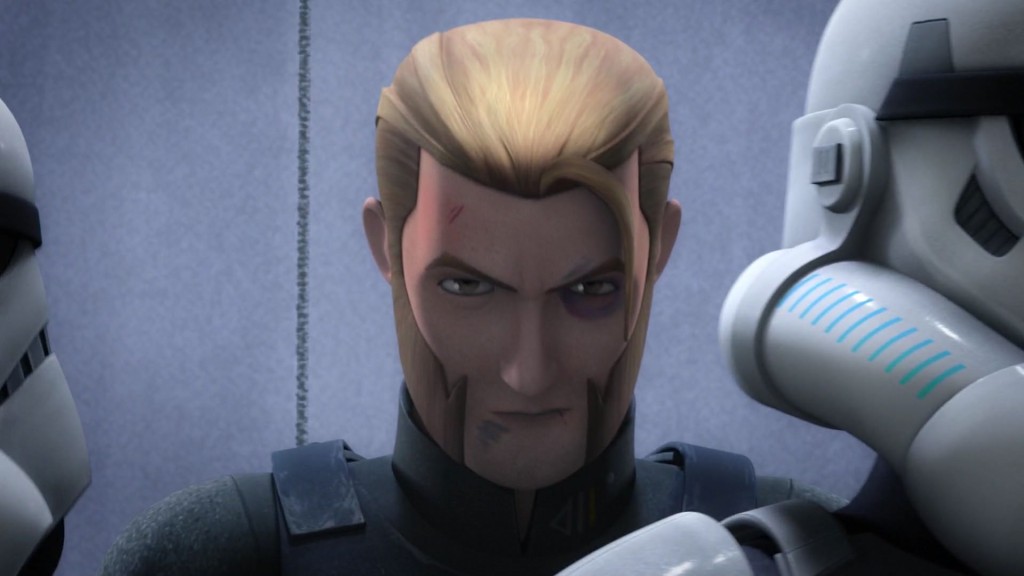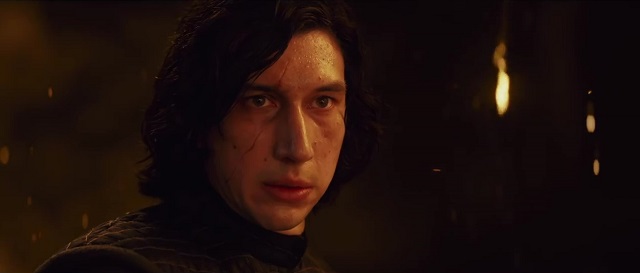
Since the release of The Last Jedi‘s theatrical trailer last week, two years of theories and speculation have at last begun to collapse into a rough shape of the movie’s plot. Not the overall structure, really, but certain moments are depicted very clearly—Luke in awe of Rey’s strength, Finn versus Phasma on a First Order base that may be the Supremacy—and a couple others strongly suggested: Kylo preparing to fire on Leia, and later offering his hand to Rey. Do those scenes really happen in the film? Lord knows we should be used to the trailers not being 100% indicative of the final films by now, but I’m inclined to believe that the essence of those two scenes does indeed happen—even if the footage used here isn’t quite right.
Kylo working up the nerve to fire on Leia is a pretty logical thing to happen post-The Force Awakens (and not especially suspenseful given that we know Carrie Fisher was meant to have a big role in Episode IX), but the suggestion that Kylo and Rey might be remotely cooperative for any reason whatsoever was like a bomb going off in the fandom: does Rey turn, fed up with Luke’s refusal to train her? Does Kylo turn, unable to follow orders and kill another parent? Or is this more of a détente, a brief setting aside of hostilities in order to reach some common goal? Personally, I don’t know, but I do know that I’ve been hoping for something along those lines to happen and I will gladly seize the thread this trailer offers and hold on tight for the next couple months.
I do think, though, that fans should try to open their minds to a much wider range of options than simply “Rey goes bad” or “Kylo becomes good”. This trilogy may have started with a defection, but I don’t see either Kylo or Rey really operating as members of the militaries they ostensibly represent—Force users rarely do. Kylo may have second thoughts, may even work actively against Snoke, but that hardly means he’d be welcomed with open arms by the Resistance or the New Republic. And Rey may well be tempted by Snoke, but we don’t really know his actual goals, do we? The First Order could simply be a means to an end for him, and if that end involves Rey, her cooperation could change his larger game in ways we can’t begin to guess—but I’m excited to see these lines blur a bit, for the movie to ask questions that the previous saga films haven’t prepared us for.
With the trailer and all its lovely possibilities now swirling around in your heads, what’s one scene, or moment, you particularly want to see in The Last Jedi? Is it a plot event or more of a character beat? And why is it important to you? Read More
